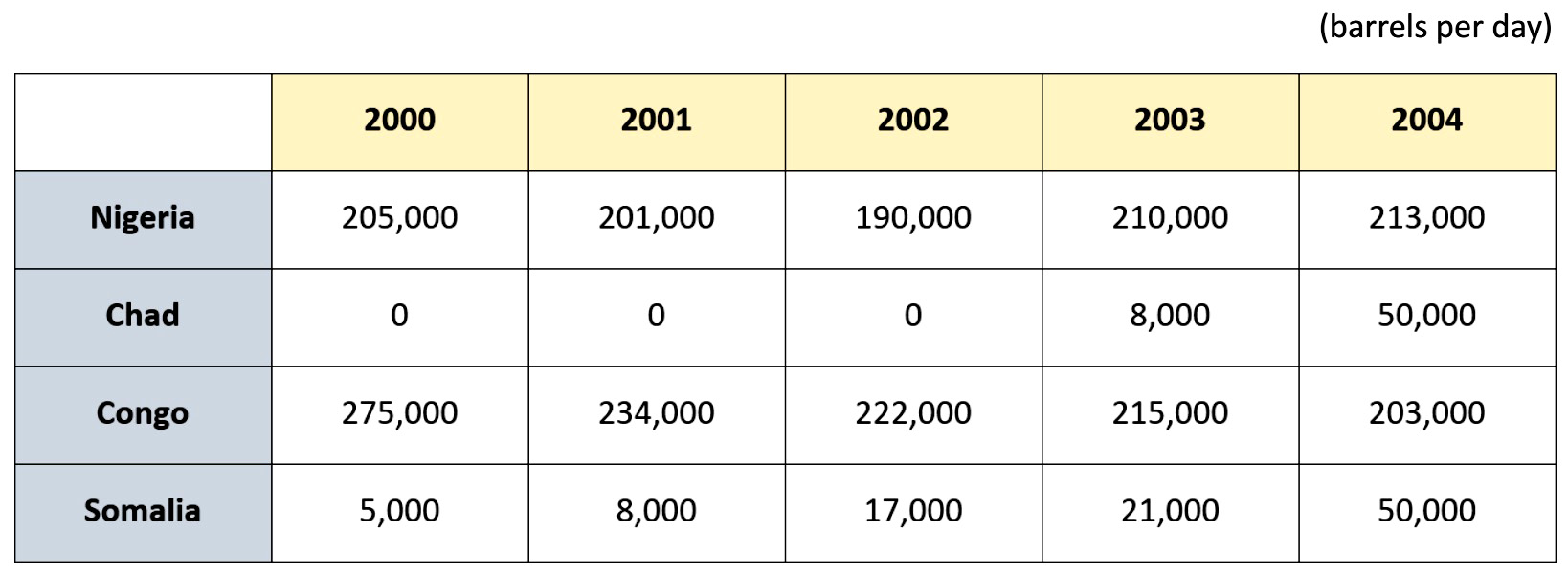The diagram illustrates the daily production of oil in four countries during the period between 2000 and 2004.
Overall, Congo was the leading producer of oil per day during the five-year period, while Chad produced the least amount of oil per day over the same period. Meanwhile, the amount of oil generated per day each year in Congo decreased over time, while the opposite was true for that of other countries.
Starting with 205,000 barrels per day in 2000, Nigeria’s daily oil production slightly fluctuated around 200,000 to end up at 213,000 barrels per day in 2004. In contrast, Congo’s oil production figures were the highest in the first year of the period at 275,000 barrels per day, however, gradually decreased over the years to reach 203,000 barrels per day in 2004.
It can also be seen that Somalia produced 5,000 barrels of oil each day in 2000, but later boosted its daily production capability considerably to 10 times more barrels per day in 2004. Finally, oil production in Chad did not begin until 2003, generating 8,000 barrels per day, sharply increasing to 50,000 barrels per day in 2004.
(189 words)

